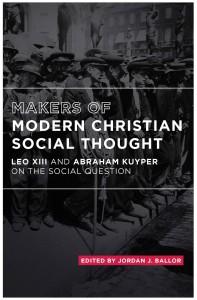 The contrast between the treatments by David Bentley Hart and Dylan Pahman of the question of the intrinsic evil of “great personal wealth” this week pretty well established, I think, that in itself wealth is among the things neither forbidden nor absolutely required. In fact, as Pahman puts it at one point, perhaps “Christians should strive to have wealth from which to provide for others.”
The contrast between the treatments by David Bentley Hart and Dylan Pahman of the question of the intrinsic evil of “great personal wealth” this week pretty well established, I think, that in itself wealth is among the things neither forbidden nor absolutely required. In fact, as Pahman puts it at one point, perhaps “Christians should strive to have wealth from which to provide for others.”
But all this is to merely show that wealth isn’t absolutely forbidden. From this it does not follow that we can merely do whatever we want or simply seek to gain as much as we can. Riches do remain a temptation, however, and a powerful one at that.
In this week’s Acton Commentary, the Dutch theologian and statesman Abraham Kuyper expounds in some detail the power of money to corrupt us and turn us away from God. The temptation is unavoidable because of the way in which money can mimic God. As Kuyper puts it, “In money, there rules a power that closely approaches God’s omnipotence, at least insofar as the satisfaction of the needs and wants of one’s outer life is concerned.”
These warnings from Kuyper about the abuse of money and its power to enthrall us come from one of his later works, the first volume of Pro Rege, part of a three-volume series that focuses on restoring the Christian understanding of the lordship of Christ and its implications for all of life (these volumes are also part of the larger Abraham Kuyper Collected Works in Public Theology).
One of Kuyper’s other works dealing with wealth, poverty, and economics is his earlier speech at the opening of the 1891 Christian Social Congress in Amsterdam. And earlier that same year Pope Leo XIII had promulgated the encyclical letter Rerum Novarum. Together these two texts usher in an era of modern Christian social thought and they sound very similar notes on the challenge represented by “the social question,” or the relationship between labor and capital.
In Rerum Novarum, in fact, even while he extols private property as a foundation for answering contemporary social challenges, Leo XIII echoes the biblical warnings about the idolatry of wealth:
Those whom fortune favors are warned that riches do not bring freedom from sorrow and are of no avail for eternal happiness, but rather are obstacles; that the rich should tremble at the threatenings of Jesus Christ – threatenings so unwonted in the mouth of our Lord – and that a most strict account must be given to the Supreme Judge for all we possess. (22)
The key to legitimate possession of wealth turns on our attitude towards it. If we see it as a force that liberates us from our obligations to others and to God, then it becomes an idol, the money-god mammon. But if it is understood as an occasion for helping others and for exercising responsible stewardship, then it can be a great blessing. Wealth and the responsibility to steward that wealth must go together. Thus, concludes Leo,
Whoever has received from the divine bounty a large share of temporal blessings, whether they be external and material, or gifts of the mind, has received them for the purpose of using them for the perfecting of his own nature, and, at the same time, that he may employ them, as the steward of God’s providence, for the benefit of others. (22)
Kuyper’s speech, “The Social Question and the Christian Religion” (also commonly known as “The Problem of Poverty”), will be appearing in a new, first-ever complete translation along with the text of Leo’s encyclical letter in a forthcoming Acton Institute edition called Makers of Modern Christian Social Thought. I’ll provide an introduction to these seminal texts on the 125th anniversary of their appearance. As you can see from these brief snippets, these thinkers still have much wisdom to pass along to us today.

